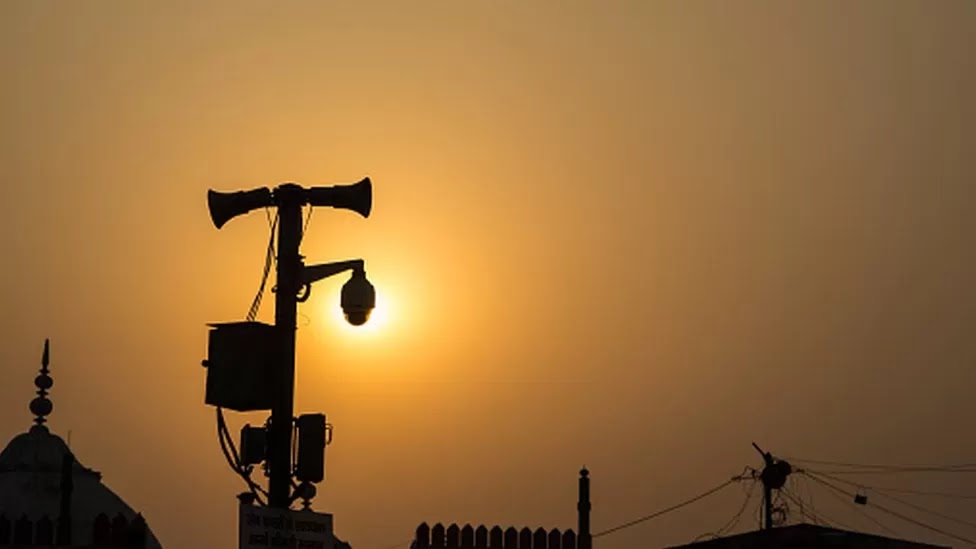In mid-February, a daily wage worker died in a hospital in the southern Indian city of Hyderabad, days after he was picked up by the police in connection with a case of robbery.
Mohammed Khadeer was detained because the police found he resembled the suspect in CCTV footage. Five days later, Khadeer was freed because the police were unsure whether they had the right man. But later, he died in hospital after recording a video in which he blamed his condition on torture in custody, a claim the police denied.
Khadeer was possibly detained because of dodgy footage. "The CCTV footage was not very clear because it was evening and it was dark," a police officer told Moneycontrol.
There are more than 1.5 million security cameras across 15 cities in India, according to Comparitech, a UK-based cyber security and privacy research firm. A combined population of 135.8 million in these cities works out to an average of 11 cameras per 1,000 people. Citizens believe they help reduce crime - though some studies show they are more useful in solving crimes than preventing them - but civil liberties groups warn of the perils of mass surveillance.
Some Indian cities are bristling with more cameras than others. Hyderabad has nearly 42 cameras per 1,000 people. Indore had the highest - 63 per 1,000 people. These two cities, along with the capital Delhi (26.7 cameras) and Chennai (24.53 cameras), were among the top most surveilled cities in the world, according to Comparitech.
Demand for CCTV cameras is also rising. Last July, just one firm - Godrej Security Solutions - reported a 40% rise in sales over 2022. Driving through the countryside in the northern state of Bihar recently, I found cameras placed on heaps of bricks in soot-laden kilns that were spewing smoke and powering the country's construction boom. They were keeping an eye on poor farmers who were making bricks. Thanks to plummeting prices, even a few homes had cameras outside the main door. "It's a status symbol now," a villager told me.
A new report by Common Cause, a non-profit group, in collaboration with Lokniti-CSDS, a polling group, appears to reaffirm this enthusiasm for surveillance among Indians. The study - based on interviews with more than 9,700 people in 12 states - finds a "high level of public support for certain forms of government surveillance".
It found that one in two respondents had installed CCTVs in their households and neighbourhoods. Affluent people were more than three times more likely to have CCTV coverage in their neighbourhoods, compared with slums and poor neighbourhoods. More educated people believed that CCTV worked for crime reduction and public safety and less as a tool for mass surveillance.
Three out of four respondents strongly believed that CCTVs helped monitor and reduce crime - except that the jury is out on this much-vaunted claim. Research by Comparitech found little - if any - correlation between the number of cameras and crime rates.
In Indore, where the cameras per 1,000 people was the highest, the crime index - the estimated overall level of crime in the city - was slightly higher than in Kozhikode in Kerala which had a mere 0.05 cameras per 100,000 people. "This trend is something we witnessed across the board in our study, demonstrating that more CCTV cameras don't necessarily mean lower crime rates," Rebecca Moody of Comparitech told me.
Governments were also three times more likely to install CCTV cameras in slums and poor areas compared with high-income neighbourhoods, the Common Cause-Lokniti report found. The poor were least likely to support the installation of CCTVs at any location - entry of homes, inside the house or at places of work.
"There is a difference between the middle class and the rich public's perception, who are more likely to support surveillance. The poor, on the other hand, are more likely to view it critically, perhaps because they are more often at the receiving end of the state's ire," the report said.
What accounts for India's love for CCTVs, a shorthand for what appears to be a wholehearted embrace of surveillance and surrender of the right to privacy? Cameras may make people safer, but the lack of regulation around their use and storage of data does pose a "serious threat to citizens' privacy, especially when things like facial recognition are used in conjunction with these systems", said Ms Moody.
The report also found that two out of the three people had not heard of the 2021 Pegasus spyware issue in which activists, journalists, politicians and lawyers around the world - including 30 reportedly from India - were allegedly targeted with phone spyware sold to governments by an Israeli firm.
A previous study had found that support for internet shutdowns by governments to maintain law and order was "also greater than opposition to it". According to SFLC.in, a Delhi-based legal advocacy group, authorities in India have shut down mobile-phone or broadband networks more than 700 times - to quell protests, stamp out unrest and stop exam cheating, among other things - since 2012. (More than 400 of these shutdowns have happened in restive Jammu and Kashmir.)
Apar Gupta of the Internet Freedom Foundation, a digital-rights organisation, said that the right to privacy in India was a work in progress. "Many Indians have embraced technology uncritically. The problem is not technology, it's about how we are using it. Our ideas of economic, political and civil rights are still to take deep roots," Mr Gupta said.

